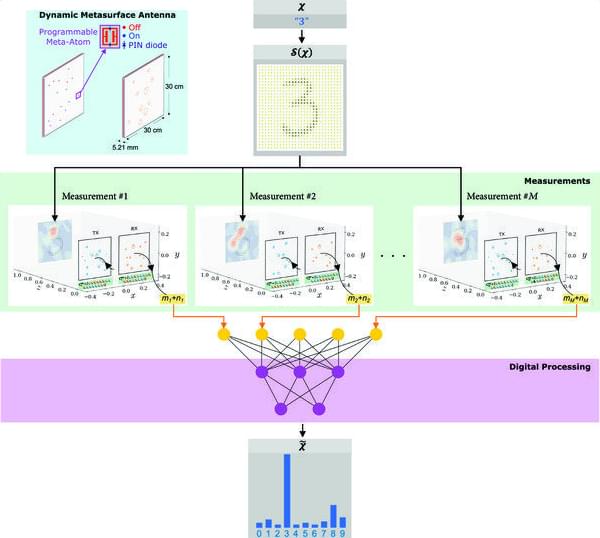Sensing systems are becoming prevalent in many areas of our lives, such as in ambient-assisted health care, autonomous vehicles, and touchless human-computer interaction. However, these systems often lack intelligence: they tend to gather all available information, even if it is not relevant. This can lead not only to privacy infringements but also to wasted time, energy, and computational resources during data processing.
To address this problem, researchers from the French CNRS came up with a concept for intelligent electromagnetic sensing, which uses machine-learning techniques to generate learned illumination patterns so as to pre-select relevant details during the measurement process. A programmable metasurface is configured to generate the learned patterns, performing high-accuracy sensing (e.g., posture recognition) with a remarkably reduced number of measurements.
But measurement processes in realistic applications are inevitably subject to a variety of noise. Noise fundamentally accompanies any measurement. The signal-to–noise ratio can be particularly low in indoor environments where the radiated electromagnetic signals must be kept weak.
